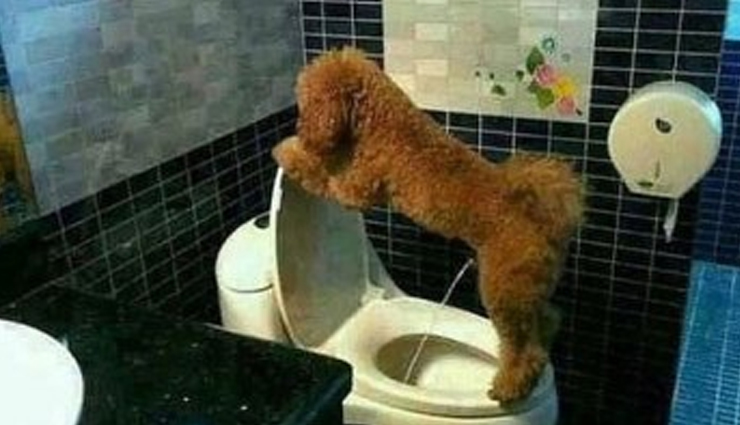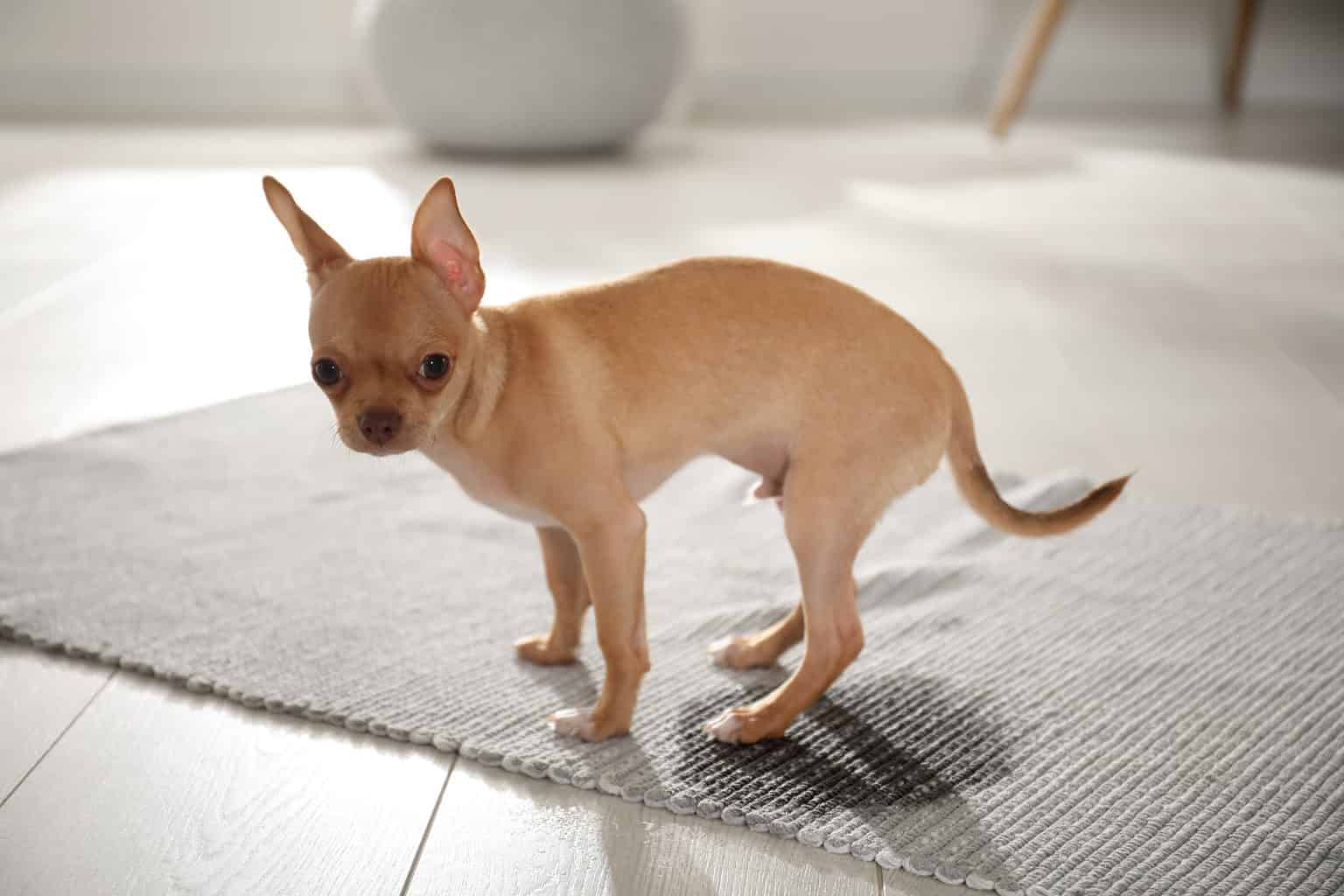Table Of Content

Usually, a good way to go about this is to gradually switch one food for another over the duration of one week. So, on day one, you’ll prepare a bowl with 75% of the old kibble and add the remaining 25% of the new kibble. On day two, the mix can be 70-30, and by day three, you can do 60-30, and so forth.

Don’t Give Your Puppy Too Much Freedom Too Soon
Dog Training: How to Crate Train a Puppy - The Wildest
Dog Training: How to Crate Train a Puppy.
Posted: Sat, 07 Aug 2021 06:51:20 GMT [source]
That’s what you may be faced with if you punish your dog urinating in the house, because next time he’ll try to hide it. It may be helpful to keep a journal to track your dog’s diet and elimination behaviors. That way, you can easily detect which interventions lead to improvement.
Take note of changes in your household
Many people living with senior dogs that have urinary issues also choose to use doggie diapers or line the dog's bedding and other frequented areas with absorbent pads. However, if your pup is already struggling with this issue, it’s important for you to gently teach your dog to enjoy spending time alone. Plus, if your pup is crated whilst home alone, they won’t be able to pee and poop around the house, either. Well, for starters, there’s really no other choice than to get to the bottom of it. And other times, it could indicate that there’s a health condition that needs to be treated with the help of your pup’s vet. The dog who leaves a bathroom boo-boo isn’t purposely misbehaving, either.
House Soiling in Dogs
If your potty-trained dog is peeing and pooping inside the house, you’re probably all sorts of confused as to why it’s happening. No one likes to see a puddle of pee or a juicy number two on their carpet or bathroom floor, albeit the latter is a slightly better option for sure.. In this guide, we’re going to discuss some of the most common reasons why your potty-trained dog might be peeing and pooping inside the house and what you can do about it. Your puppy’s mental health might also play a role in their indoor accidents. If you know your dog is experiencing separation anxiety, indoor peeing could be a secondhand result of their stress. Dogs in heat may also experience bladder issues, though this likely won’t explain your puppy’s problems.
Less obvious, minor changes in the house include having visitors over (furry friends or people) or making changes to your daily routine. Changes in your work or school schedule, or even changing the time of your dog’s daily walk, can lead to urinary accidents. Puppies may still have accidents when they're being house trained, but old age can bring on other causes of urinary accidents. Forms of dementia or senility can occur in aging dogs, leading to house soiling.
Dogs notoriously hate the smell of vinegar and tend to avoid areas where it’s been sprayed on. If there’s a spot inside the house where your dog has pooped, you should consistently spray it with vinegar so that the smell of vinegar lingers in that area. Also, be sure to thoroughly clean the area immediately after your pup has had an accident there. By the way, some dogs just hate bad weather and they might absolutely refuse to go outside for a potty break. And you can see how they might be inclined to pee or poop in the house… If it’s super windy and cold, snowing or raining, a good doggy coat and some cute booties might do the trick. A dog with a UTI may experience frequent urination, peeing small amounts often, foul smelling urine, licking of the genitals, crying when peeing, blood in the urine, and nausea.
Top 5 Causes of Disobedience in Dogs, According to Animal Behaviorists - Newsweek
Top 5 Causes of Disobedience in Dogs, According to Animal Behaviorists.
Posted: Wed, 29 Mar 2023 07:00:00 GMT [source]
Rather, they are likely to wait until you are not around and pee somewhere hidden in the house, making it worse. Punishing your dog for urinating in the house is not an effective strategy. Rather than learning that “urinating inside is wrong,” they may well learn that “urinating in front of you” is wrong. Sometimes this can be treated with medication, but you may also need to resign yourself to a future of doggy diapers.
Address Any Stressors In The Home
Similarly, if you have a male dog who isn’t neutered, he “could be marking because of the hormones in his body.” This can be solved by getting your dog neutered. If they can’t identify the problem, look for emotional and behavioral triggers and try and solve them, and then commit time to re-training your dog on where they should be peeing. It is annoying when your dog decides to start peeing in the house, but it is not a reason to get angry or punish your dog. Dogs use their pee to mark their territory, so if they are peeing inside, they are probably letting someone know that the house is theirs.
Even when your puppy has been introduced to potty training while in the care of the breeder or rescue, they might not be fully house trained for up to a year. It’s important to continue potty training your new pup at home as well to ensure that those learned behaviors stick. When talking about younger dogs, we may sometimes overestimate their progress in house training. Yes, after a few months your puppy will likely be mostly potty-trained. However, some accidents may happen from time to time, especially the younger your puppy is. But what if your seemingly potty-trained puppy is peeing and pooping inside the house?
You’ll want to use an enzymatic carpet cleaner for urine or — at the very least — a carpet deodorizer to fully break down your dog’s lingering pee stain. House training your dog is often a long and tiring task, but it’s just part of the pet-parenting gig. Depending on your dog, the entire process can take anywhere from a couple of months to a year or more. This behavior can be traced back to a variety of causes including health problems, training issues, and social factors.
Be sure that your veterinarian has checked your dog and confirmed that there is no medical factor creating urgency. Yes, you can train your dog to use a litter box or pee pad indoors, especially if you live in a high-rise apartment or have limited outdoor space. Introduce the litter box or pee pad gradually, use positive reinforcement, and provide consistent opportunities for your dog to use the designated potty area.
Trained medical professionals can help to diagnose your puppy’s issues, and will work with you to determine the best path forward. Between implementing an exercise schedule, establishing a nutritional diet, and completing your other tasks, you might find your attention diverted at some points during the day. If your puppy keeps peeing in the house when you least expect it, you could be missing some of the signs that your puppy needs a break. If you notice that your dog fully empties their bladder during extra bathroom breaks, they were likely holding their urine for too long. However, if your puppy neglects to go at all or if they’re emptying a nearly empty bladder—scheduling likely isn’t your problem.
Above all, be patient, and in time your dog will learn exactly where to eliminate. You may also find that potty-training sprays are helpful for deterring dogs from marking indoors. If it’s consistently around the same time every day, you’ll want to adjust your potty break schedule to reflect that. Many dogs start having accidents because they were never truly house trained. But that’s not a problem — you can always go through the process again.
But don’t isolate them; choose the rooms that you also spend the most time in. The idea is to make those rooms their home, and that won’t work as well if you’re not there, too. As such, if you come home to find that your dog has peed in the house, she recommends that you ignore it and go back to enacting some basic house-training protocol. For instance, she says you can confine your dog to a small area in your house or use a crate to retrain them. You know that face — the sad, guilty look a dog flashes when they’ve been caught peeing in the house. Your first thought may be to scold them, but is that really going to stop accidents from happening again?

No comments:
Post a Comment